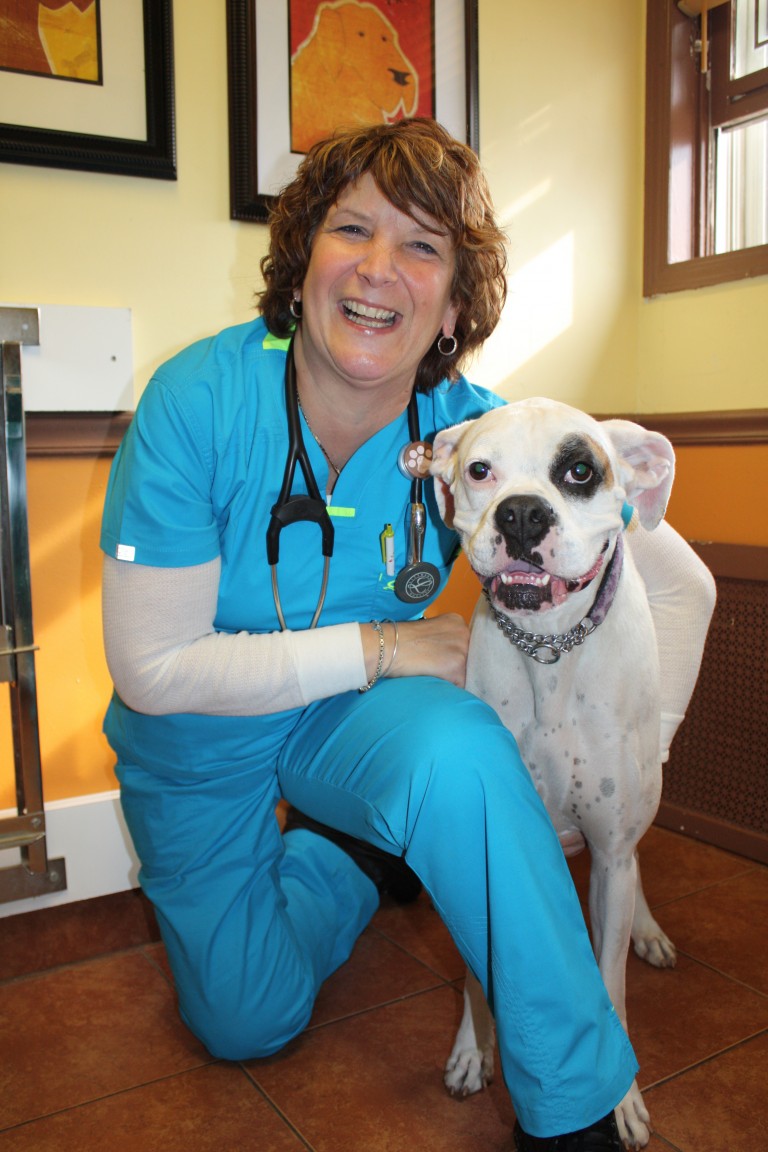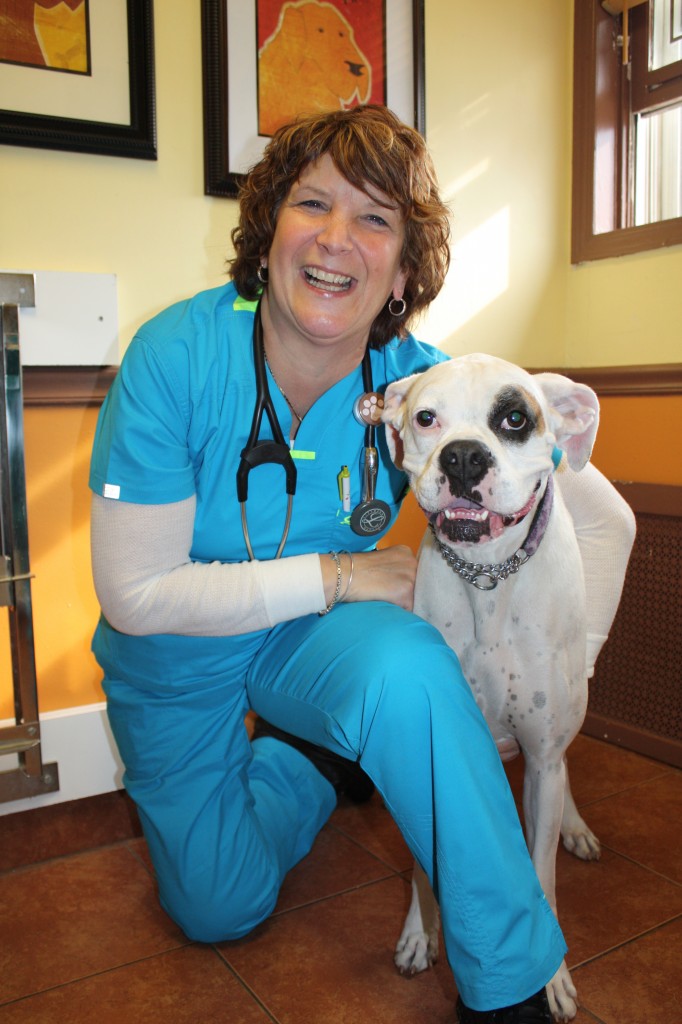Many pet owners have the misconceived notion that by vaccinating their pets once a year, they are taking care of them and keeping them healthy. While vaccinating your pet is extremely important, it’s not the whole picture. Imagine never going to see your own doctor and going to a pharmacy just to get vaccines once a year. This probably sounds crazy to you…as it should. An extremely important part of keeping your pet healthy is their annual or biannual exam depending on their age. Unfortunately, pets age at a much faster rate than we do which makes their examinations that much more important.
During your pets comprehensive examination, your veterinarian will check their eyes, ears, nose, throat, teeth, listen to their heart and lungs, palpate their abdomen for any organ enlargement or changes, check for any new growths or changes to their skin or hair coat, examine their joints and perform a rectal exam to check the colon, anal glands and prostate in males. An annual exam for young animals and biannual exam for senior pets in very important because your veterinarian can find and address any abnormalities at an early stage which could make all the difference in your pet’s health.
An important part of taking care of your pet is preventative care. Preventative care includes your pet’s examination as well as other diagnostics depending on their age. Most veterinarians at a minimal will recommend a fecal analysis and heartworm testing. A fecal analysis checks for common worms and protozoans that can be harmful to your pet as well as contagious to other animals and in some case Zoonotic- contagious to humans. Heartworm testing checks for a parasite transmitted by mosquitoes that can cause congestive heart failure. Most veterinarians will also recommend routine blood work once or twice yearly on your pet…the same as your physician would. This usually includes a CBC and Chemistry panel. A CBC or complete blood count is a measure of your pet’s red blood cells, white blood cells and platelets. A Chemistry panel measures your pets liver enzymes, kidney values, protein levels, electrolytes and minerals. As you pet ages, your veterinarian will also recommend routine thyroid screening and a urinalysis. These tests can help identify problems at an early stage which often gives a much better prognosis.
When you bought or adopted your pet, you took an oath to take care of them. An important part of taking care of them is taking them to their veterinarian for their exam and preventative tests. Talk to your veterinarian about what you can to do help your pet live a long and happy life.


